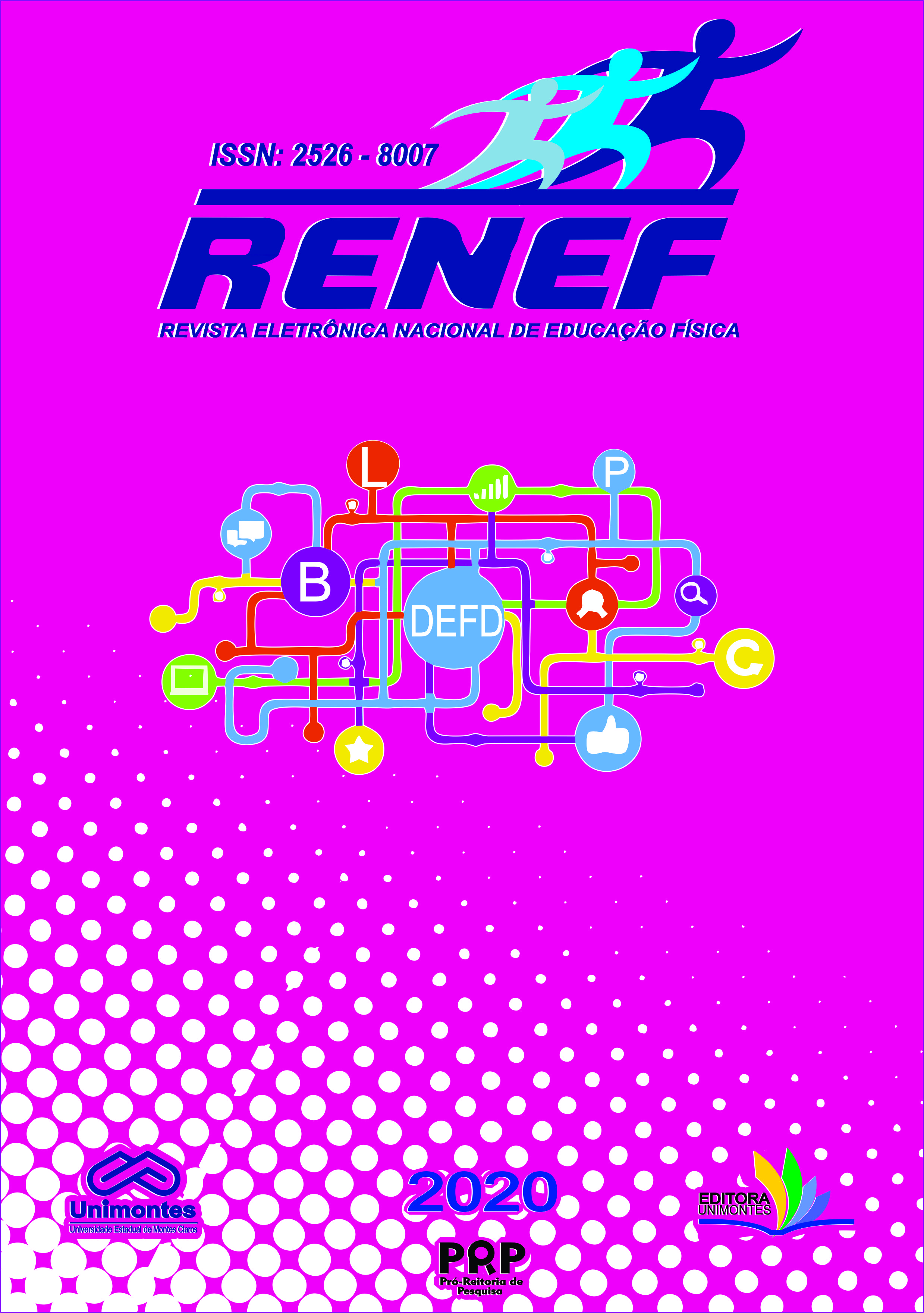THE PRACTICE OF BRAZILIAN JIU JITSU AND THE DEVELOPMENT OF EXECUTIVE FUNCTIONS: A SYSTEMATIC REVIEW OF LITERATURE
DOI:
10.46551/rn2020101500036Keywords:
Executive Functions, Jiu Jitsu, Cognition, Martial Arts, SportsAbstract
Brazilian Jiu-Jitsu (BJJ) is a martial art of self-defense that encompasses the entire systematic and complex human body. Widely practiced in Brazil and the world, the BJJ presents motor characteristics related to the development of children's executive functions (EFs). However, it is still unknown the process by which such contributions occur and whether they happen. Thus, this article aims to identify and understand the possible participation of BJJ practice in the development process of children's EF. This study was carried out through a literature review by searching for complete review articles indexed in the PubMed and ScieElo databases, published from 2011 to 2019. After the selection and analysis of the five articles (two literature reviews and three meta-analyses), it was identified that the practice of exercises contributes to the development of the EF, including inhibitory control, working memory, and cognitive flexibility. Indeed, scientific articles related to the practice of BJJ and the development of EFs are scarce. However, there is a definite trend regarding the participation of children in sports programs with characteristics similar to BJJ, resulting in EFs improvement. Further studies are suggested to identify the acute and chronic effect of the BJJ practice on children's EFs.
Keywords: Executive Function, Jiu Jitsu, Cognition, Martial Arts, Sports.
Downloads
References
APOLINÁRIO-SOUZA, T.; FERNANDES, L. Processamento de informações e intervenção do profissional: tomada de decisão em foco. Arquivos de Ciências do Esporte. v.6, n.3, p.91-93, 2018.
BARROS, P.M.; HAZIN, I. Avaliação das Funções Executivas na Infância: Revisão dos Conceitos e Instrumentos. Psicologia em Pesquisa. v.7, n.1, p. 13-22, 2013.
BUENO, J.; SAAVEDRA, L. Brazilian JiuJitsu and inhibitory control: effects of practice on secondary public school students in Abu Dhabi, UAE. Revista de Artes Marciales Asiáticas. v.11, n.2s, p.96-97, 2016.
CRISTOFORI, I.; COHEN-ZIMERMAN, S.; GRAFMAN, J. Executive functions. Handbook of Clinical Neurology. v.163, p.197-219, 2019.
DIAMOND, A.; LEE, K. Interventions shown to aid executive function development in children 4 to 12 years old. Science. v.333, p.959-64, 2011.
DIAMOND, A. Executive functions. Annual Review of Psychology. v.64, p.135-68, 2013
DOURIS, P.; DOURIS, C.; NICOLE, B. Martial Art Training and Cognitive Performance in Middle‐Aged Adults. Journal of Human Kinetics. v.47, p.277‐283, 2015.
FUENTES, D.; MALLOY-DINIZ, L.F.; CAMARGO, C.H.P.; COSENZA, R.M. Neuropsicologia: teoria e prática. Porto Alegre: Artmed, 2008.
GRACIE, R. Carlos Gracie: o criador de uma dinastia. Rio de Janeiro: Record, 2008.
GREEFF, J.W.; BOSKER, R.J; OOSTERLAAN, J.; VISSCHER, C.; HARTMAN, E. Effects of physical activity on executive functions, attention and academic performance in preadolescent children: a meta-analysis. Journal of Science and Medicine in Sport. v.21, n.5, p.501-507, 2018.
ISHIHARA, T.; SUGASAWA, S.; MATSUDA, Y.; MIZUNO, M. Relationship between sports experience and executive function in 6-12-year-old children: independence from physical fitness and moderation by gender. Developmental Science. v.21, n.3, p.05-13, 2018.
KIM, Y. The effect of regular Taekwondo exercise on Brain‐derived neurotrophic factor and Stroop test in undergraduate student. Journal of exercise nutrition & biochemistry. v.19, n.2, p.73‐79, 2015.
LAKES, K.; HOYT, W. Promoting self‐regulation through school‐based martial arts training. Applied Developmental Psychology. v.25, n.3, p.283–302, 2004.
LAKES, K.D.; BRYARS, T.; SIRISINAHAL, S.; SALIM, N.; ARASTOO, S.; EMMERSON, N.; KANG, D.; SHIM, L.; WONG, D.; KANG, C.J. The Healthy for Life Taekwondo Pilot Study: A Preliminary Evaluation of Effects on Executive Function and BMI, Feasibility, and Acceptability. Mental Health and Physical Activity. v.6, n.3, p.181-188, 2013.
LO, W.L.A.; LIANG, Z.; LI, W.; LUO, S.; ZOU, Z.; CHEN, S.; YU, Q. The Effect of Judo Training on Set-Shifting in School Children. BioMed Research International. doi: 10.1155/2019/2572016, 2019.
LOPES, M.C.; MAGALHÃES, R.T.; DINIZ, L.B.F.; MOREIRA, J.P.A.; ALBUQUERQUE, M.R. The influence of technical skills on decision making of novice volleyball players. Revista Brasileira de Cineantropometria & Desempenho Humano. v.18, p.362–70, 2016.
MARTENIUK, R.G. Information processing in motor skills. New York: Holt: Rinehart & Winston; 1976.
MONTUORI, S.; D'AURIZIO, G.; FOTI, F.; LIPAROTI, M.; LARDONE, A.; PESOLI, M.; SORRENTINO, G.; MANDOLESI, L.; CURCIO, G.; SORRENTINO, P. Executive functioning profiles in elite volleyball athletes: Preliminary results by a sport-specific task switching protocol. Human Movement Science. v.63, p.73-81, 2019.
NUNES, A.V.; RUBIO, K. As origens do judô brasileiro: a árvore genealógica dos medalhistas olímpicos. Revista Brasileira de Educação Física e Esporte. v.26, n.4, p. 667-678, 2012.
TANI, G., CORRÊA, U. Aprendizagem motora e o ensino do esporte. São Paulo, Blucher, 2016.
TOMPOROWSKI, P.D.; PESCE, C. Exercise, Sports, and Performance Arts Benefit Cognition via a Common Process. Psychological Bulletin. v.145, n.9, p.929-951, 2019.
VERBURGH, L.; KÖNIGS, M.; SCHERDER, E.J.; OOSTERLAAN, J. Physical exercise and executive functions in preadolescent children, adolescents and young adults: a meta-analysis. British Journal of Sports Medicine. v.48, n.12, p.973-9, 2014.
WANG, C.; CHANG, C.; LIANG, Y.; SHIH, C.; CHIU, W.; TSENG, P.; HUNG, D.L.; TZENG, O.J.; MUGGLETON, N.G.; JUAN, C.H. Open vs . Closed Skill Sports and the Modulation of Inhibitory Control. PLoS One. v.8, n.2, p.4–13, 2013.
XUE, Y.; YANG, Y.; HUANG, T. Effects of chronic exercise interventions on executive function among children and adolescents: a systematic review with meta-analysis. British Journal of Sports Medicine. v.53, n.22, p.1397-1404, 2019.
Published
Versions
- 2020-06-27 (3)
- 2020-06-27 (2)
- 2020-06-25 (1)


















